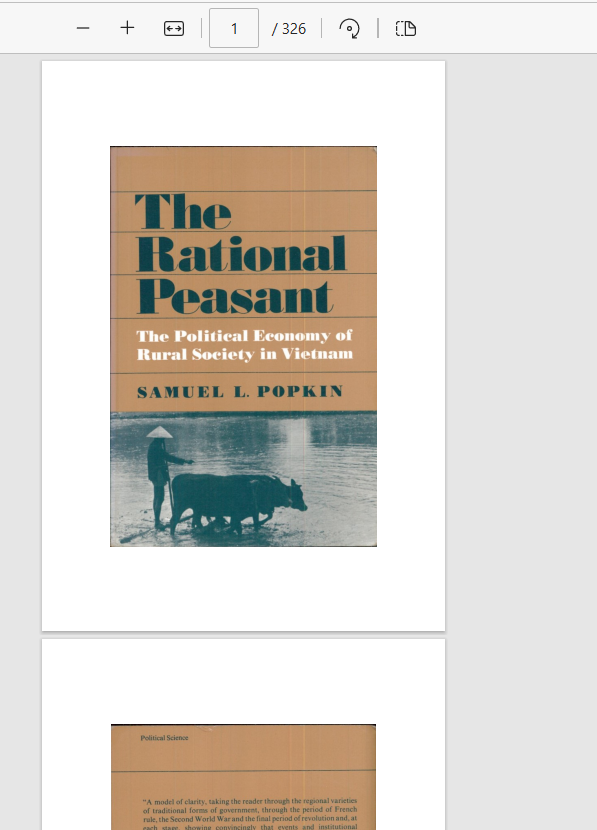The Rational Peasant
作者: Samuel L. Popkin
内容简介
Popkin develops a model of rational peasant behavior and shows how village procedures result from the self-interested interactions of peasants. This political economy view of peasant behavior stands in contrast to the model of a distinctive peasant moral economy in which the village community is primarily responsible for ensuring the welfare of its members.
作者简介
Samuel L. Popkin
Professor of Political Science
Ph.D., MIT, 1969
Voting Behavior, Political Economy, Comparative Politics
Popkin has published in unusually diverse areas. His most recent book is The Candidate: What it Takes to Win (and Hold) the White House. Earlier he authored The Reasoning Voter: Communication and Persuasion in Presidential Campaigns ; co-authored Issues and Strategies: The Computer Simulation of Presidential Campaigns; and he co-edited Chief of Staff: Twenty-Five Years of Managing the Presidency. He is equally well known for his work on peasant society, with particular reference to East and Southeast Asia, including The Rational Peasant: The Political Economy of Rural Society in Vietnam. Popkin has also been a consulting analyst in presidential campaigns, serving as consultant to the Clinton campaign on polling and strategy, to the CBS News election units from 1983 to 1990 on survey design and analysis, and more recently to the Gore campaign. He has also served as consultant to political parties in Canada and Europe and to the Departments of State and Defense. His current research focuses on presidential campaigns and the relationship of public opinion to foreign policy.
原文摘录
In response to such views, Gourou warned against any tampering with the corporate villages. He was well aware of the inequality and venality, but admired the way that Vietnamese peasants were integrated into their villages. There was a "strict tyranny", to be sure, but the village was still a community. To alter the village, he argued, would deprive the peasants of what little happiness they had. Not everyone who worked with Gourou felt that the peasant would be best served by preserving the traditional village. After several years in the villages with Gourou, one of his research assistants became convinced that drastic change, both economic and political, was needed to improve the lot of the peasantry. His name was Vo Nguyen


![[美]萧公权:中国乡村:论19世纪的帝国控制(华盛顿大学出版社 1960).pdf](https://www.wdooc.com/ku/wp-content/themes/begin5.2/img/loading.png)
